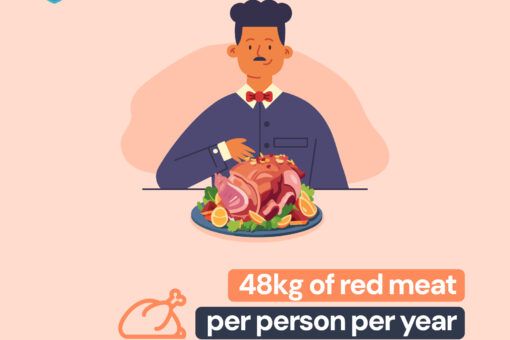
High-income countries such as the UK can promote and incentivise the intake of plant-based food and cut down on red meat consumption as this would shift the demand towards low-carbon, healthier options. This could have a global impact as agricultural emissions from lower and middle-income countries are due to the high demand for animal-source foods.
Food consumption can be influenced by ensuring that food prices include the environmental and health costs borne by society. Taxation of red meat (similar to the sugar tax but based on the level of environmental impacts) and redirecting the revenues into subsidising fruits, vegetables and plant-based alternatives could be a strategic solution to drive consumer preferences away from unhealthy and unsustainable animal protein. This would also influence manufacturers to reduce red meat portions in different food items such as ready-to-eat meals to reduce costs. Studies have shown that such taxation of only meat products can reduce GHG emissions by 18% while improving health outcomes. While many believe such taxation is politically impossible, there are examples from around the world where this could soon become a reality. For example, Denmark has approved an agricultural tax as a part of its commitment to reach climate goals where from 2030 each tonne of CO2 emitted will cost €16 and this would increase to €40 by 2035; which means each cow would incur a tax of up to £80 per year. It has managed to do so by taking different stakeholders, including farmers, on board.
